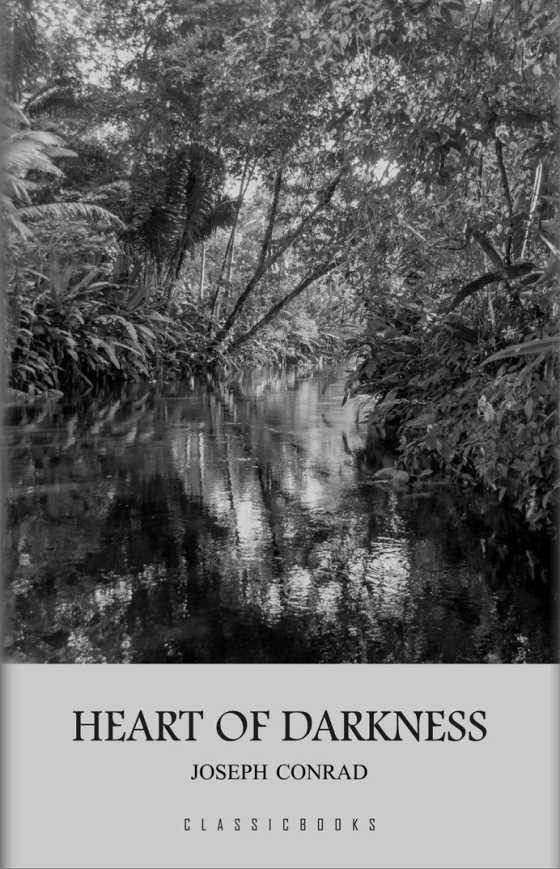 The book that inspired the film: Apocalypse Now.
The book that inspired the film: Apocalypse Now.
I read this book many, many years ago and i especially wanted to read it again before re-reading The Little Paris Bookshop. From my long ago memory of Heart of Darkness it struck me that there was something similar going on in the two books so i wanted to re-read both. More on the similarities in the next review, for this review i’m just sticking with Heart of Darkness.
So what did i think? It has the usual politically incorrect Victorian wording and attitude to non-Europeans, which tends towards appalling, even more so than usual as this book is mostly telling a story of the Belgian Congo when the Belgians were exploiting it and its peoples.
There’s a lot been said about this book, both good and bad, and you can read more on the wiki page if you want to know more.
For me, i’d like to see the glass half full with this one. Yes i understand the other side of the debate, and i most certainly do not condone any colonialism, i absolutely condemn it all, however; this book was written in the Victorian age and i do feel that if you are going to read Victorian literature then you have to lay aside your modern prejudices, morals, ethics, etc., and understand that the people writing it were victims and hostages of their own age as we are of ours. It’s not so much politically incorrect as it’s far more politically ignorant. And for me that is what a lot of this book is about: the political ignorance of the age.
Yes, Conrad uses words that are considered repugnant now, but they were not considered so when he wrote this. And its the words, i feel, that create the problem for a lot of people, allowing those to cloud their judgement of Conrad’s attitude and opinion. If you can take that step back and accept the words to be used as they were used in his age by white Europeans, only then can you see what Conrad was really saying when he wrote this book. You really cannot read this book as though it were written by someone in the 21st century for people in the 21st century. It’s a piece of history written a long time ago, read it as such.
So, if one considers the above, it is, i think, very clear that Conrad is very appalled with the worse of white Europeans descending upon the peoples of Africa appearing almost deity like — and exploiting that appearance to the maximum — simply due to their modern technology, their equipment, their immaculate white clothes in a hostile environment of sweat and mud. What chance would any person who has lived a natural life in a completely natural world have of remaining unaffected by the power and influence over the natural world that white Europeans had at their disposal?
Conrad makes clear that he alone, amongst the white Europeans on the boat, can see the humanity in the people’s of the Congo, while others would just consider them wild animals. How the sounds of the Congalese connected to a part of him, as only a human could connect to another human.
The only white person in the whole of Africa that Conrad wishes to speak to is Kurtz, the rest he seems to dismiss as arrogant fools and idiots who should never have been there.
One also has to remember that Conrad actually did go on this journey on a steam boat up the Congo to one of the inner stations, he witnessed what the Belgians were actually doing there, and he knew very well what Europe was being told about the people that lived there. The most telling part of this book is simply Kurtz’s last four words: “The horror, the horror!”
When Marlow, the protagonist, finally arrives home and meets Kurtz’s fiancé and she asks him what his final words were he cannot bring himself to tell her the truth because he feels it would crush her to know what he did in her name, as Kurtz only went there to win his fortune in order to be considered worthy to be her husband. One can quite clearly see the metaphor here, that Conrad himself, when he came back from the Congo, didn’t have anyone to speak to of the horror that he had witnessed being done in the name of the progress of European nations at the expense of those they dehumanise, oppress and treat no better than animals. There seems to me that if we place Conrad in Marlow’s place, we get to realise that when Conrad was in the Congo, he had no one to understand his feelings of horror, that he only wished to find one person amongst it all that he could talk to. And when he came home to Europe how was he to explain to the people of Europe the horror that was being done in their name by the worse of them that they would send to Africa on their behalf — and would they even want to listen?
So for me, this is what this book is, Conrad’s description of what he’d experienced in Africa that he felt no one would, or could, listen to; that he felt no one he knew would understand.
If only he could have found just one person at the end of his own journey to talk to who understood.
As i mentioned at the beginning, i was reading this before re-reading The Little Paris Bookshop, so please consider reading that straight after this. Some may think it’s a strange juxtaposition to make, but i think it works rather well.
